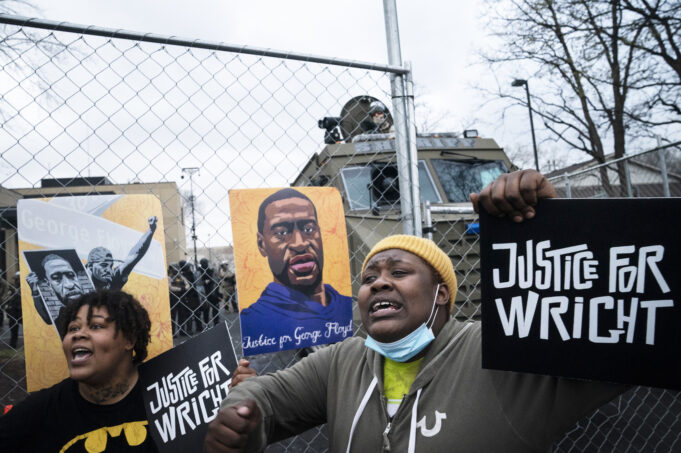Tears ran down Katie Wright’s eyes as she described the last conversation she had with her son during a news conference held by Atty. Benjamin Crump.
It was 1:47 on April 11 when her 20-year-old son, Daunte Wright, called her and told her he got pulled over by police. She asked him why, and he said because he had air fresheners hanging in his rearview mirror. She then told him to take them down. Eventually, officers asked her son to put his phone down, and he complied and got out of the car. She then heard officers scuffling with him.
As the grieving mother paused for a moment, in tears, Atty. Crump and the people around her gave her words of comfort. The surrounding people consisted of other families who suffered loss by the hands of police or criminal justice system failures: the families of George Floyd, Jamar Clark, Travis Jordan and Emmett Till; Toshira Garraway, whose fiancée was found dead in a dumpster hours after a police encounter 12 years ago; Amity Dimock, whose 21-year-old autistic son, Kobe Dimock-Heisler, was shot in 2019 blocks down the street from Daunte; and others.
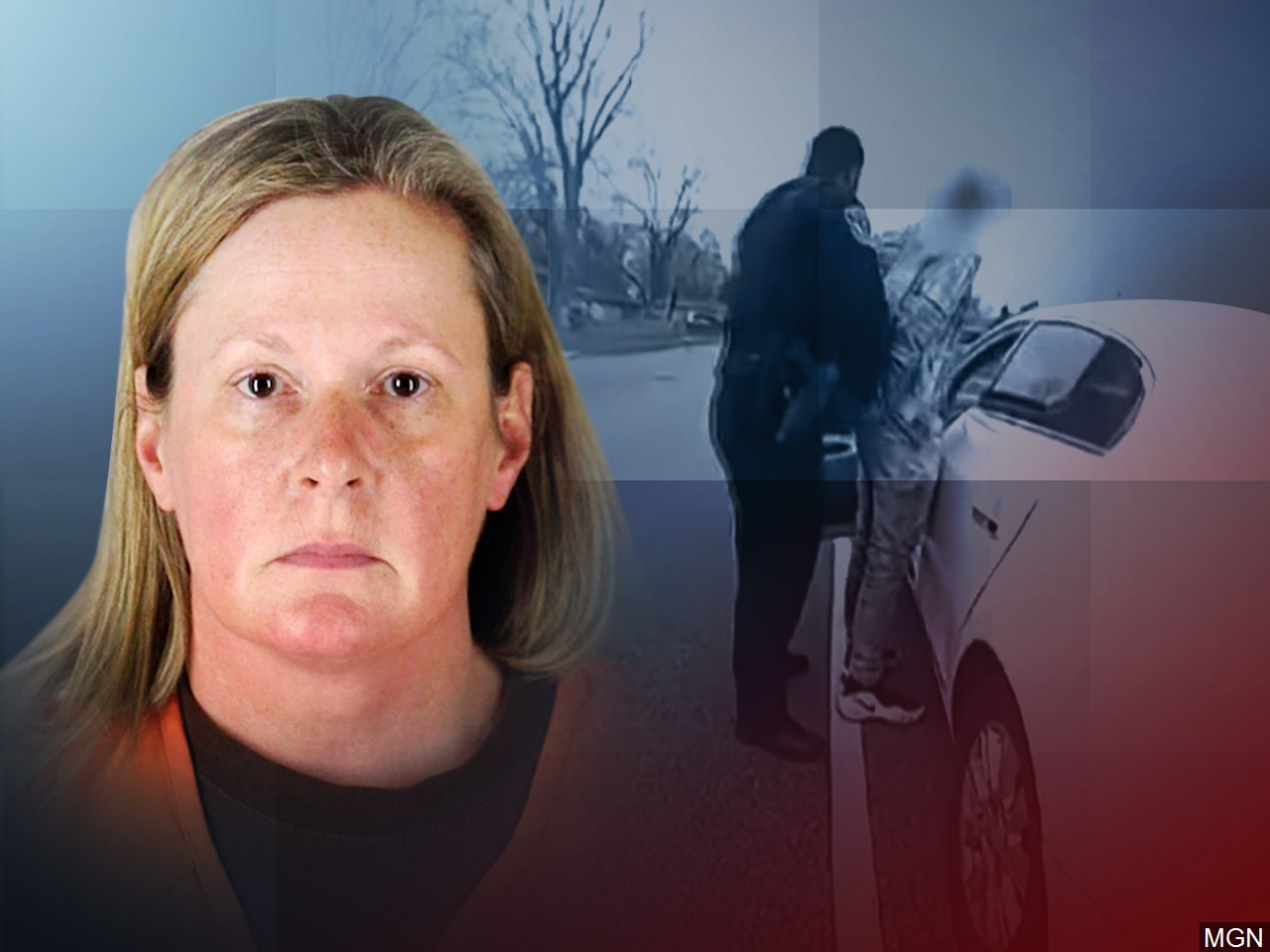
Officer Kimberly Potter charged with 2nd-degree manslaughter in fatal shooting of Daunte Wright.
“The police officer asked him to hang up the phone. They hung up the phone. Three or four seconds went by. I tried calling it back to back to back, because I didn’t know what was going on, and I never imagined this was what was gonna happen. I just thought maybe he was being arrested,” Ms. Wright recounted. “And then when I called back, the girl that he had in the car answered the phone, and it was on a FaceTime. And she said, she was crying and screaming, and she said that they shot him. And then she pointed the phone towards the driver’s seat and my son was laying there unresponsive. That was the last time that I seen my son, that’s the last time I heard from my son, and I have had no explanation since then.”
Her son was shot and killed in a Minneapolis suburb by 26 year veteran officer Kim Potter during a traffic stop. Ms. Potter, along with Police Chief Tim Gannon, resigned on April 13. The next day, it was announced that the former officer would be charged with second-degree manslaughter, a charge that has a maximum penalty of 10 years in prison.
The victim’s family have called the charges a start, but want more stringent charges filed against the officer. Other observers have called the police killing outright murder.
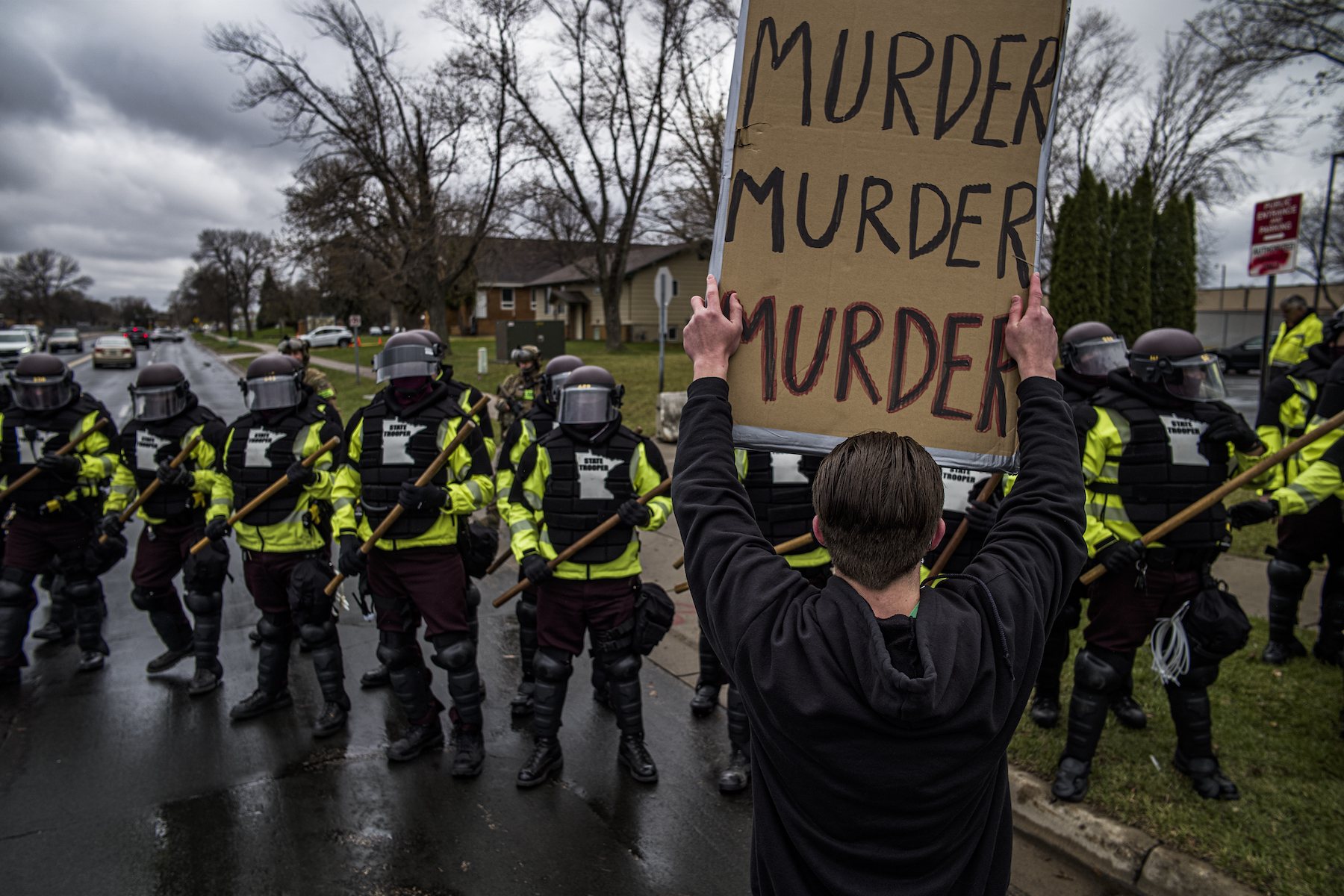
Authorities said Mr. Wright was stopped for having expired registration. Mr. Gannon repeated Ms. Potter’s assertion that while trying to grab her taser, she mistakenly grabbed her gun.
Cheryl Dorsey, a retired LAPD sergeant and author of an autobiography, “Black and Blue: The Creation of a Social Advocate,” told The Final Call that the account of the events was intellectually dishonest.
“They had received some information. Obviously, they must have run Mr. Wright through the system and found out that he had some outstanding warrants, and they decided that they were going to then place him under arrest,” she said. “And at that point, it looked like this other officer Kim Potter showed up and decided to inject herself into the situation that really had nothing to do with her. And she said she pulled out her gun by accident. She meant to tase Mr. Wright, which would have been problematic in and of itself because you wouldn’t tase someone simply because they’re being uncooperative.”
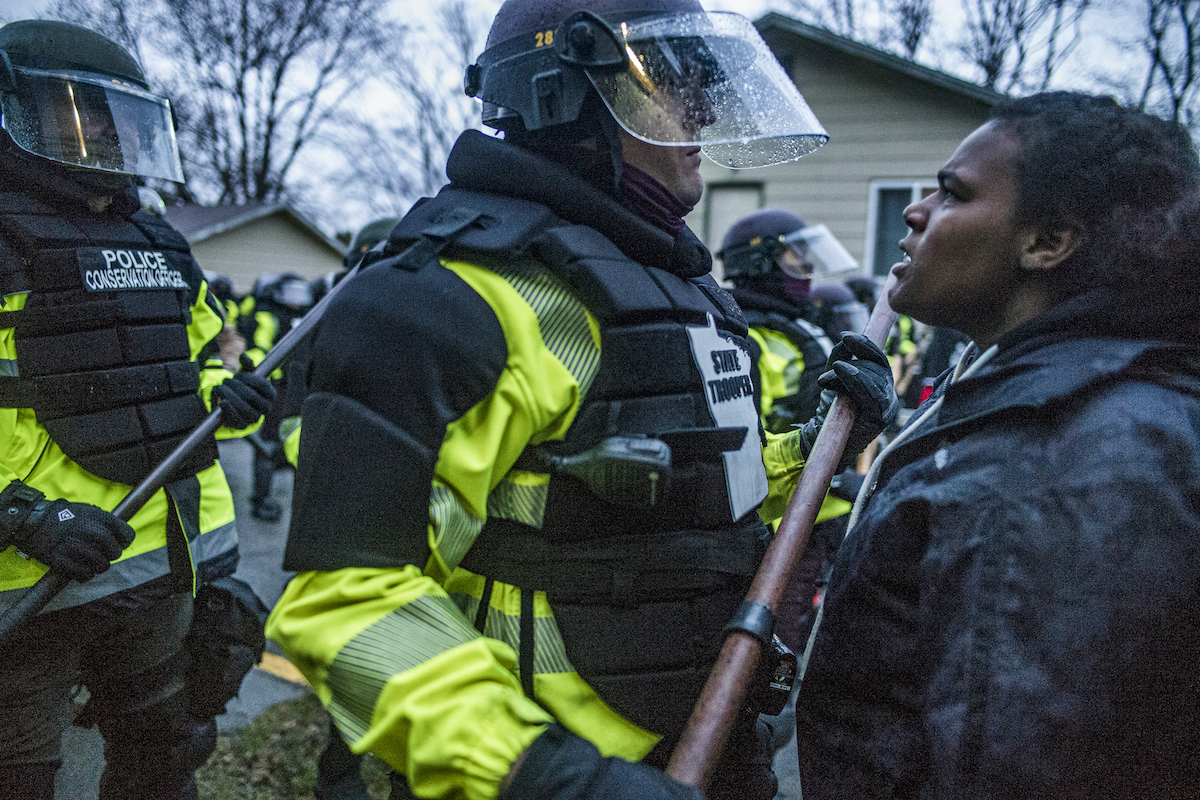
She said there was no reason why Mr. Wright should have been shot, as officers knew who he was and knew where he lived. She explained that police officers touch their guns every day and are intimately familiar with them. They train over and over, manipulating the firearm, handling it, breaking the gun down and cleaning the gun.
“I don’t believe for one minute that that was a mistake. I absolutely believe that it was murder. She held her duty weapon in her hand. She looked down the barrel of that gun through the sights to line up the target, Daunte Wright. She made a conscious decision to put her finger through the trigger guard and pull the trigger. And something that requires more squeeze, if you will, pounds per pressure to pull a trigger than you would to push the mechanism that would deploy a taser,” Ms. Dorsey said. “And so they’re very different, and the Taser is stored on her utility belt, on her gun belt, on her weak side. So the process of reaching across her body to her weak side to retrieve the Taser is very different from reaching down to get her duty weapon, which is on her strong side.”
Having worked the gang detail, Ms. Dorsey has been in the position when a suspect ran from her, but she never shot them.
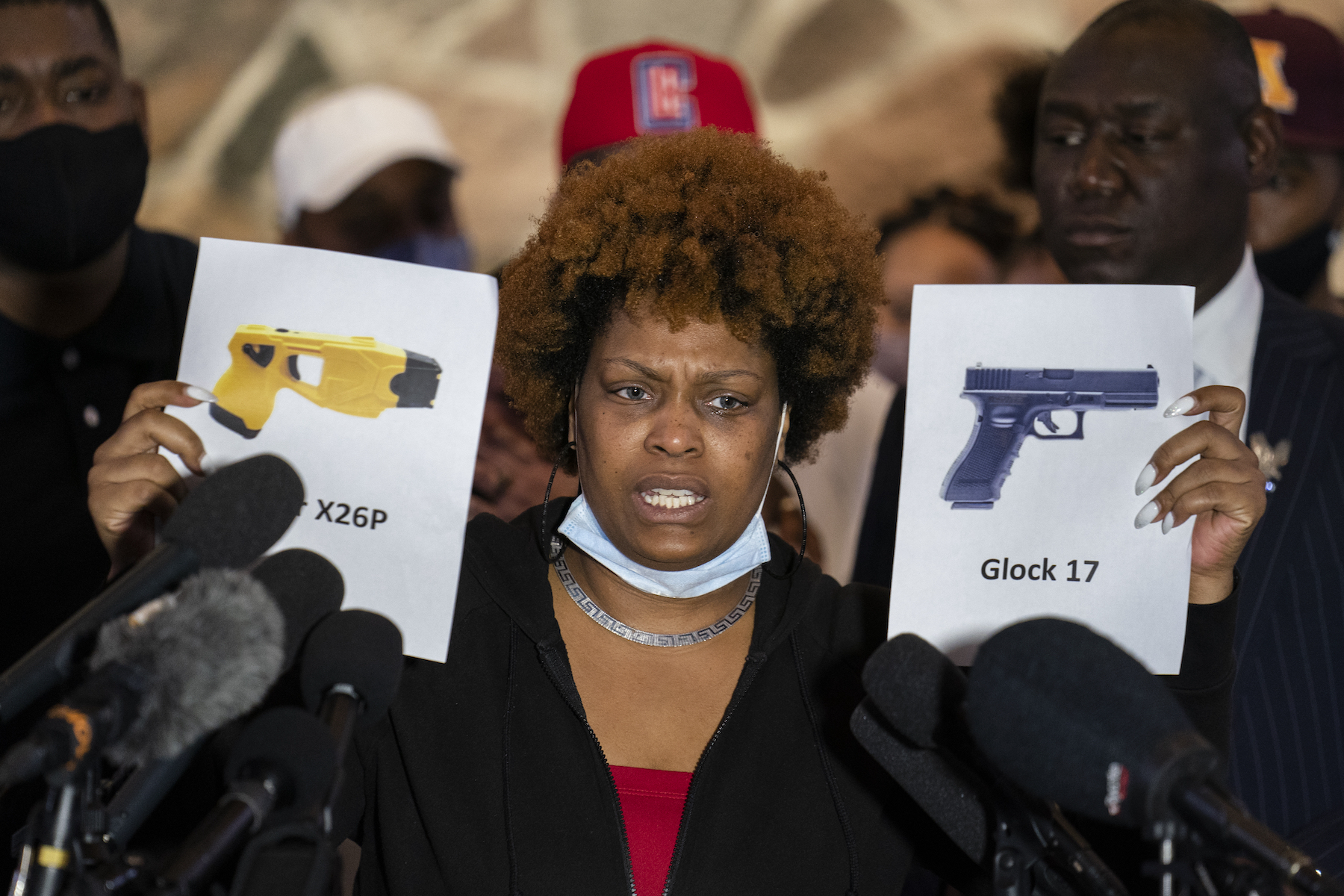
“When people run from me, I’ve always only really had two choices: go after them, get ready to get some exercise, or let them go. I can’t shoot you in the back because you’re running away from me and I may not have the physicality to catch you,” she said. “That’s not the way we’re taught and trained. We fire our duty weapon in the immediate defense of life, my life or the life of another person. A fleeing suspect on a misdemeanor warrant, maybe, who had an air freshener hanging from his rearview mirror, possibly, violates everything that I’ve been taught and trained.”
She said officers need to be convicted for their crimes, and once that starts happening regularly, it may give officers pause in the future when dealing with Black people.
A grieving family and a healing community
During a news conference, Daunte Wright’s family challenged the account that the shooting was a mistake.
“That woman held that gun out in front of her for a long damn time, a long damn time!” said Daunte’s aunt, Naisha Wright, who spoke on behalf of her brother, Daunte’s father, who was too heartbroken to speak. “My nephew was 20-years-old. 20-years-old. I don’t care what nobody got to say about him. He was loved. He was ours. He came from us. My brother and my sister is hurt,” she said. “Like I said, this is no broken home. This is no broken home. This is 23 years of love. 23. My nephew was 20. Did y’all not see my little great nephew? Did y’all not see that beautiful baby? He is fatherless, not of a mistake, of a murder! That’s murder!”
Mr. Wright, still young himself, left behind a baby son who he will never get to see grow up. The last time Chyna Whitaker, the baby’s mother, saw Daunte, she had dropped their son off with his grandmother.
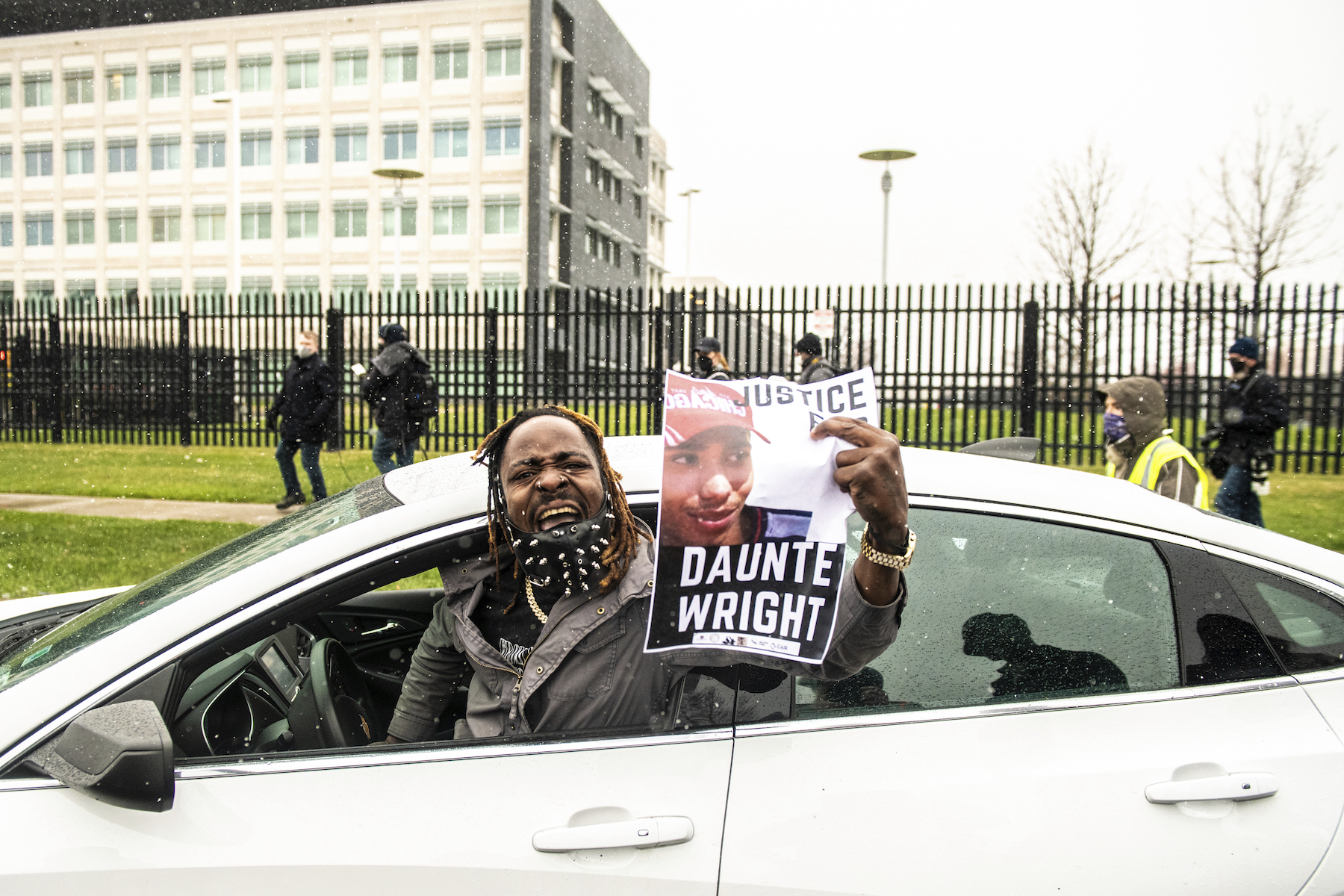
“I didn’t know that was gonna be the last time that I was gonna see him. And I just feel like that’s all wrong, because now my son, he don’t have a dad,” she said. “His dad didn’t get to see him for his second birthday or for any of his birthdays. And I’m just so messed up about it because like, I feel like they stole my son’s dad from him.”
Anika Bowie, a community justice leader in Minneapolis, told The Final Call the city is tense.
“The climate is a climate that Black folks are gasping for air and seeking any type of opportunity to be on a pathway of healing and figuring out what that means in real time,” she added.
She explained that what is happening is the new age and new innovation of White supremacy. “It no longer is the white hoods and white masks and all of that. It’s no longer the way that racism, or White-led terrorism was romanticized. Now, it is legalized and embedded in our system, and now we are starting to see that,” she said. “I think we are starting to see also with our lawmakers, that our lawmakers are trying to preserve White futures by any means necessary, and their interpretation of how to protect their lives and their futures and their family, unfortunately, their greatest thinking is that it comes at the cost of our lives.”
She said the community is going through a healing process, now, and in order to deal with the problem of police brutality, more people are going into counseling, therapy, life coaching, political leadership and justice leadership.
Families stand in solidarity
Daunte Wright was killed a few miles from where Derek Chauvin is on trial for the death of George Floyd, a 46-year-old Black man who died in Minneapolis a year ago after officers held knees on his back and neck for nine minutes and 29 seconds.
George Floyd’s two brothers, Philonise and Rodney Floyd, and his nephew, Brandon Williams, gave their condolences to the Wright family.
“I can’t say I know how you feel, but we’ve been in a similar situation, so I know that you need a lot of love, support and prayer, and any way that our family can stand with you guys and be there, we’re here,” Mr. Williams said.
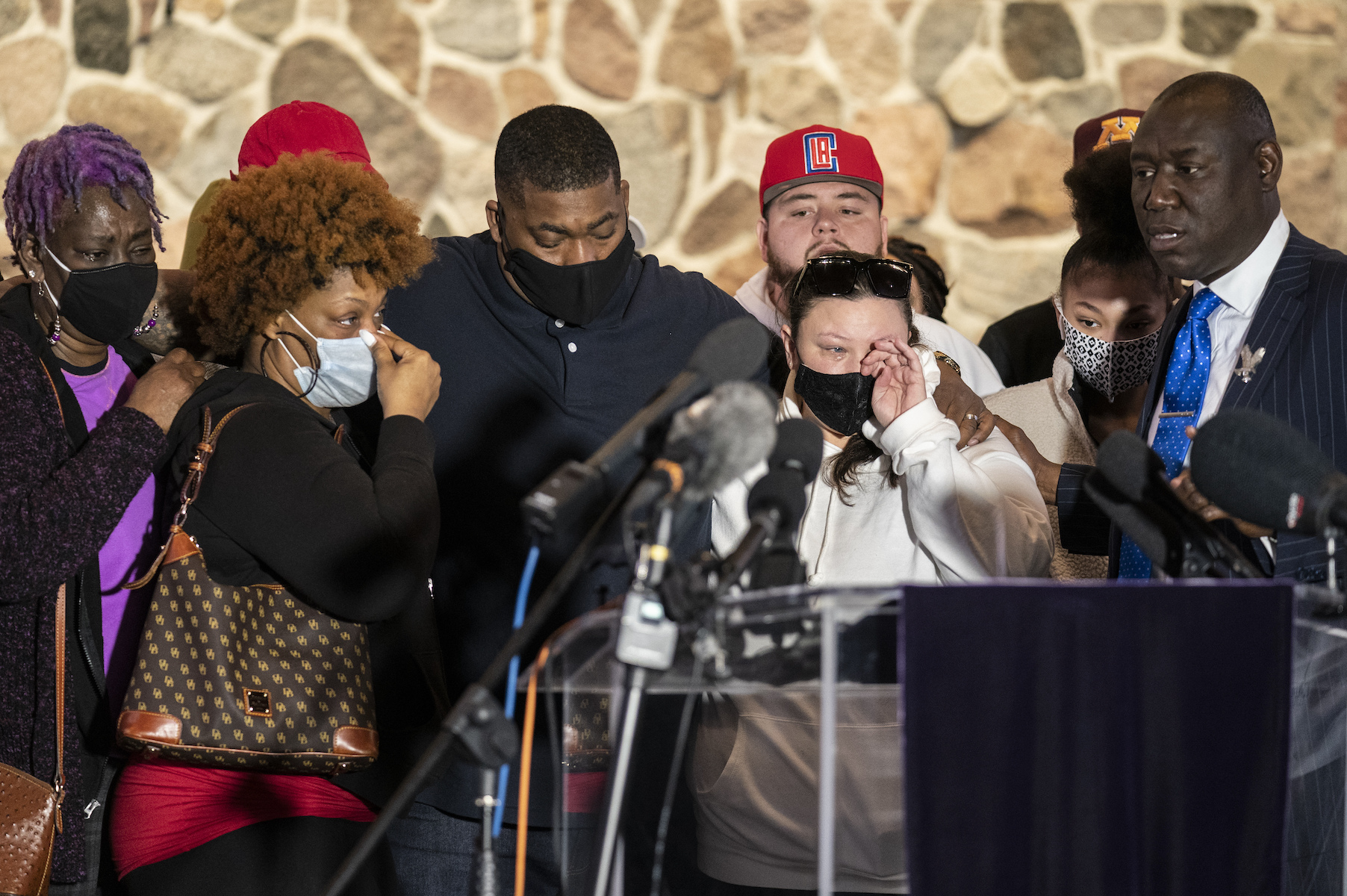
“To the world, I just simply say damn again. And when I say damn again, I mean another Black man or woman killed at the hands of the police using excessive force. If you look around, we’re standing outside the courtroom, and my family is right here right now, in the middle of the Derek Chauvin trial for murdering my Uncle George Floyd, in snow and freezing weather conditions; we came to stand with this family,” he continued. “And for what exact reason? A so-called mistake? A handgun for a taser? It’s unacceptable. When is enough enough? Can you blame Daunte for being terrified as a Black man in the custody of police? When you just watched here in Minneapolis, George Floyd murdered at the hands of the very same police?”
The day following the news conference, several of the mothers of the movement—Black women who lost sons to police violence—Gwen Carr, mother of Eric Garner, Sequette Clark, mother of Stephon Clark, Sybrina Fulton, mother of Trayvon Martin and Lesley McSpadden, mother of Michael Brown, held a panel discussion, moderated by Atty. Crump. During the April 14 panel discussion, the mothers gave their condolences and support to Katie Wright.
“It’s so sad, because sometimes it takes things like this to really wake people up and to really make a real change,” Sequette Clark told The Final Call. “I think that without the blood of my son, without the blood of George Floyd and without the blood of Daunte Wright, we wouldn’t be at this pivotal point in America right now, unfortunately, so it’s just, it’s bittersweet.”
She said when your son is lost by the hands of police, everything in your life is uprooted. She said the mothers of the movement know what Ms. Wright is going through, and that they are protective over mothers.
“This is the sorority that no one wants to be a part of, okay, but once you’re a part of it, we know that their needs to be, someone needs to protect her. Someone needs to comfort her, someone needs to understand her, someone needs to help her, someone needs to clean for her, someone needs to cook for her, someone needs to encourage her,” Ms. Clark said. “We’ve all been here. We’ve all been here. We’ve all been in the position where the police have killed our children and then the world tries to pick them apart and then we hold our breath waiting to see if justice is going to be served by the officers being charged.”
The path towards healing comes with accepting what happened and then finding a healthy way to grieve, Ms. Clark said. She has healing group therapy that she does with mothers who have lost a child to police violence, and she is the CEO of the I Am SAC (Stephon Alonzo Clark) Foundation, which empowers underserved communities.
She said police brutality is a nationwide epidemic and should be treated as such. “Training for police needs to be redone in every city and every state,” Ms. Clark said.












